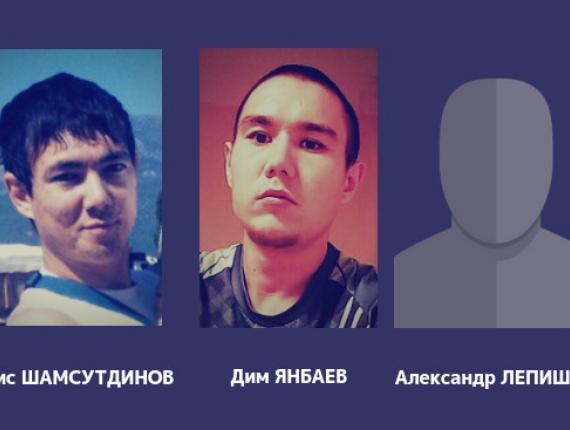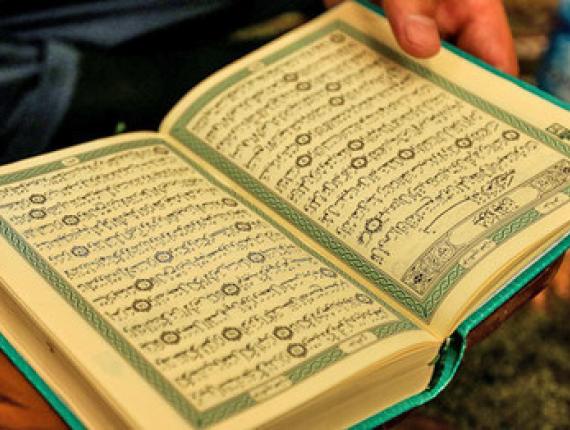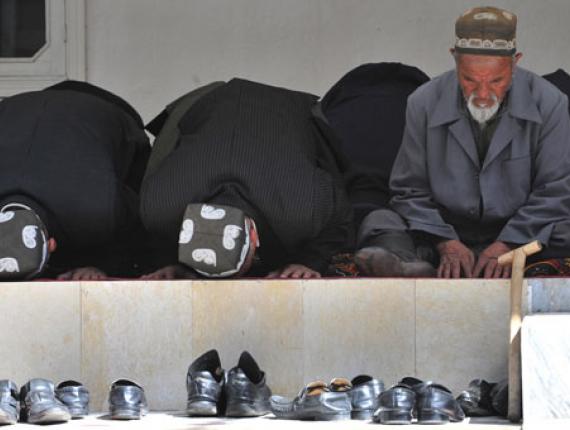Memorial says those convicted of membership in Hizb ut-Tahrir in Chelyabinsk are political prisoners
The three men were tried for an offence under anti-terrorism law, but were not charged with terrorism or any other kind of violence.
In 2017 three Muslims from Chelyabinsk region – Aleksandr Lepishin, Rais Shamsutdinov and Dim Yanbaev – were convicted of involvement in Hizb ut-Tahrir al-Islami for an offence under Article 205.5, Section 2, of the Russian Criminal Code (‘Participation in the activities of a terrorist organisation’) and sentenced to two years in a prison colony. Their trial was heard in a military court on the grounds they were ‘terrorists.’
However, there is not a shred of evidence that the men in question committed or planned to commit crimes of violence, still less a terrorist offence. As in dozens of other criminal cases concerning involvement in Hizb ut-Tahrir, the defendants took part in meetings, discussed the ideology of the organisation, and promoted their beliefs among Muslims.
The charges relate exclusively to the participation of the defendants in the international religious organisation Hizb ut-Tahrir al-Islami, designated a terrorist organisation by a 2003 decision of the Supreme Court of Russia. But neither in this decision by the Supreme Court, nor in the materials of criminal cases investigated in Russia and in the countries of the CIS, are there any concrete facts to show that the organisation engages in terrorism or any other kind of violent activities. Nor is there any information to show the involvement of the organisation in the activities of jihadi groups in Europe or the Middle East.
The decision of the Supreme Court of the Russian Federation contains three propositions about the activities of Hizb ut-Tahrir. The first declares the purpose of Hizb ut-Tahrir to be the creation of a universal Caliphate; the second points to its conduct of Islamic propaganda on a large scale; and the third refers to the ban on the organisation’s activities in Uzbekistan and some other Arab countries. These formulae in themselves cannot serve as grounds for designation of the organisation as terrorist. We therefore consider the decision of the Supreme Court to designate Hizb ut-Tahrir as a terrorist organisation unjustified, and, consequently, there can be no grounds to bring charges of terrorism exclusively on the basis of membership in Hizb ut-Tahrir.
Memorial has repeatedly stated that it does not agree with the decision of the Supreme Court to designate Hizb ut-Tahrir as a terrorist organisation and considers the decision to be unjustified.
We consider the conviction of Chelyabinsk Muslims Aleksandr Lepishin, Rais Shamsutdinov and Dim Yanbaev unjustified. We recognise them as political prisoners and demand their release, along with that of more than two hundred other individuals convicted or remanded in custody for membership in Hizb ut-Tahrir.
Recognition of an individual as a political prisoner, or of a prosecution as politically motivated, does not imply that Memorial Human Rights Centre shares or approves the individual’s views, statements or actions.
More information about this case is available on the website of Memorial Human Rights Centre.
PayPal – an e-wallet for giving help to all Russian political prisoners
helppoliticalprisoners@gmail.com
Поделиться:
- ВКонтакте
- РћРТвЂВВВВВВВВнокласснРСвЂВВВВВВВВРєРСвЂВВВВВВВВ
- Telegram




